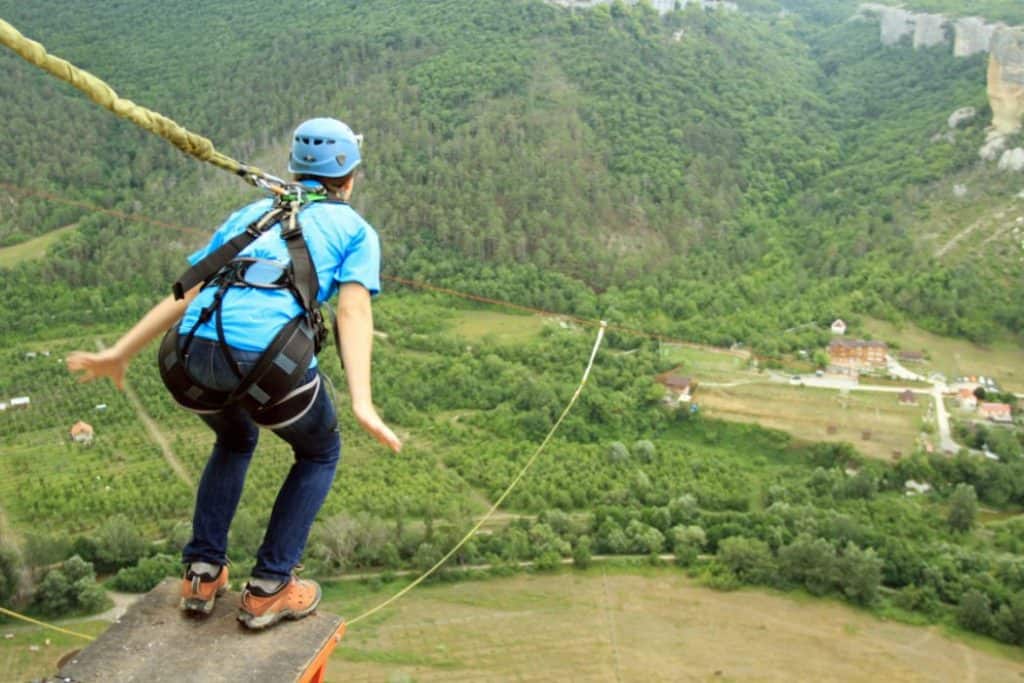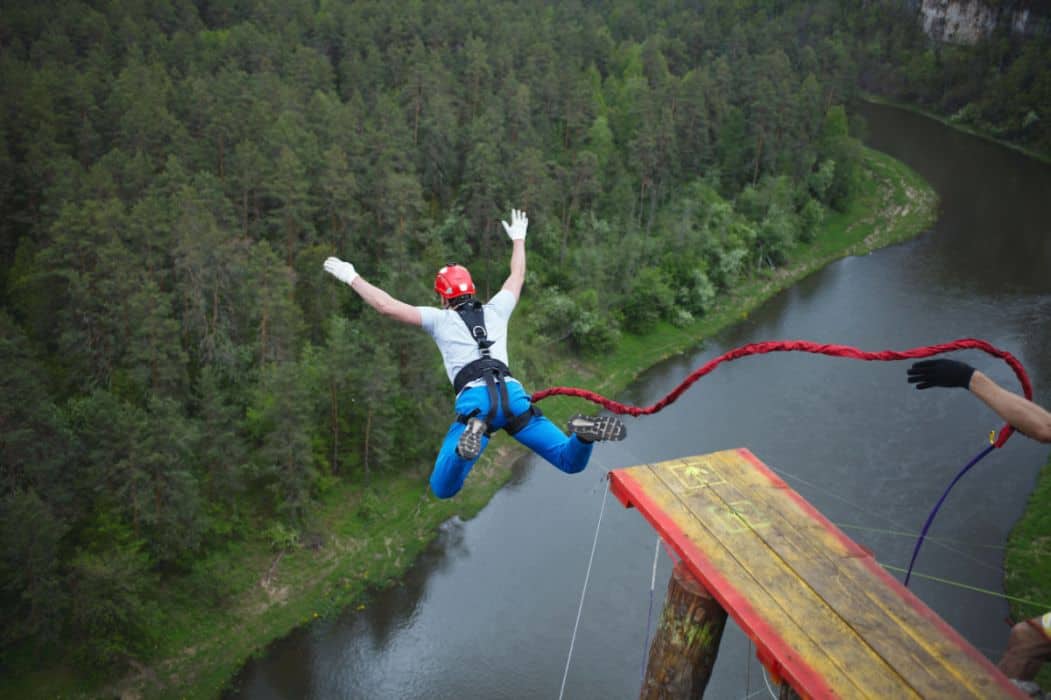Yes, a bungee cord can break. But, no, it shouldn’t scare you out of jumping; there’s a 1 in 500,000 chance of dying from bungee jumping.
Let’s talk about all this below.
What causes a bungee jumping rope to break?
Here are a few reasons why bungee cords can potentially break.
Improper use and storage
Bungee jumping cords have limited lifespans.
If the bungee company uses the rope way after its useful life, that can increase the risk of the cord breaking.
Apart from aging, prolonged exposure to the elements may cut short the expected life of the cords.
Plus, improper storage can cause ropes to develop molds which may also contribute to a shorter lifespan.
So bungee companies need to take extra precautions to ensure that they:
- Inspect all cords regularly, before and after each use.
- Store all cords at the proper temperatures in an appropriate storage condition to prevent mildew and molding.
- Make sure all cords are completely dry before storage.

Poor quality
Another reason that may cause cords to break is poor manufacturing.
If the bungee operator buys cords from a less than reputable supplier, it may lead to breakage.
That’s why bungee companies should make it a point to purchase cords only from the best suppliers who can ensure that the ropes have been tested for quality.
Excess weights
The thickness of the bungee cord depends on how heavy you are.
If, for some reason, you use a rope that’s not designed for a person of your build, the rope may fail to handle the weight.
That said, as mentioned before, the risks of breaking are minuscule. This is because the success of bungee operators’ businesses is based on safety ratings.
Therefore, it’s virtually impossible for them to slip up and choose inferior manufacturers or skimp on their quality checks.
If they get a bad rap for accidents, they go out of business almost immediately.
In addition, they have to maintain safety standards to keep their operating licenses.
On top of that, all jumpers are always weighed before taking the leap, which means; there’ll rarely ever be an occasion of weight mismatch.
Safety tips for bungee jumpers
They do say two heads are better than one.
So here are some tips to add an extra layer of security on your side to ensure everything goes smoothly.
- Don’t take off any gear you will be wearing during the jump when they weigh you. This is because you need an accurate reflection of your weight to find the best cord to handle it.
- Ask if they have any backup harnesses and if they can tie the cord to more than one part of the body. For instance, it’s safer to have both your feet and waist tied to cords in case something happens to one of them.
- Verify how many times they check their equipment and ask how many people are in charge of that. The more people who inspect the cords, the better.
- Only use reputable companies. Newbies may not have as much experience or as much to protect as established companies. Also, check for reviews to see just how much of a good reputation the company has.
- Listen to your gut. If you get a bad feeling about the bungee operators, for instance, if you pick up a whiff that they aren’t forthcoming about their security checks, it’s best to forgo the jump.
Wrap up
Bungee cords can indeed break if not used properly.
It’s also true that bungee jumping companies take every precaution to prevent such accidents and protect their reputation.
Ultimately the safety and security of your jump is a team effort. So, make sure to ask as much as you can and help avoid any such mishaps.
Remember, the risk of cords breaking is minimal. Just choose a longstanding operator and take some extra precautions. Go ahead and enjoy this momentous adrenaline thrill!
Check out some of the best places to Jump in the USA and Europe.




